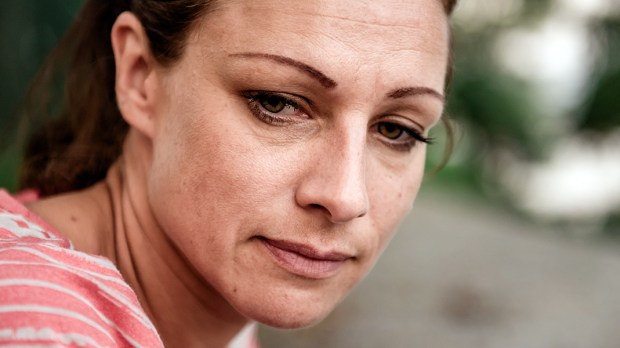The following is a true story, told to me by one of those in the story: A daycare worker said to a little boy, “You’ve got your shoes on the wrong feet.” He began crying; between sobs he yelled, “But these are my feet!”
What can we observe about this little boy? 1) He was very sure; 2) he felt very strongly; 3) he was very wrong.
I tell you this story because it so closely resembles innumerable conversations I’ve had about conscience, especially with people who are glad to announce their moral conclusions but are reluctant to talk about how they got there. I’ve encountered people who seem to me to be indifferent to (if not immune to) evidence, argument, and persuasion. There’s the old joke: “He’s got a concrete mind—permanently set and all mixed up!” So too for those who misapprehend and therefore misuse conscience.
All too often I’ve met people who refuse to engage in moral discourse because they’re certain, “Because conscience!” or, as I like to summarize it, “Shut up, he explained.” They are as sure as the little boy with his shoes on the wrong feet.
Similarly, these folks who won’t hear an argument and won’t defend or even explain their moral reasoning measure their certainty by the intensity of their emotions: “I just feel that …” When challenged they assure me, “I feel very strongly about this!” As strongly as the little boy with his shoes on the wrong feet?
I readily admit that there are moral topics that brook no disagreement, for example, there’s never a time when genocide is okay. And I readily admit that there are topics about which honorable people may disagree, for example, about how to best educate their own children. What I find puzzling, frustrating, and suspicious is the stubbornness on the part of some to account for the workings of their moral reasoning. Perhaps they don’t know how to articulate their moral reasoning, or, worse, perhaps they don’t know how to reason morally, and worst of all, see no need to. In this column we will review the manual to see how the owner of a conscience may begin to use it properly.
Read more:
You only need one thing to access Jesus’ heart, says pope
The role of the intellect in the work of conscience is to derive moral conclusions through a process of deductive reasoning. We begin with a major premise (that is, a general principle), a minor premise (that is, the application of the principle to the case now under consideration), and a conclusion that logically follows from the two premises.
Example:
MAJOR PREMISE—Murder (that is, the deliberate taking of innocent human life) is always wrong.
MINOR PREMISE—Killing my business rival in order to steal his product is murder.
CONCLUSION—I ought not to murder my business rival.
The major premise or general moral principle is either recognized immediately (for example, “Do good and avoid evil”) or is derived from other first order principles. It’s easy to see the movement from “Do good and avoid evil” to “Love your offspring” to “Provide for your children’s education.” There are some moral truths that we can’t not know, about which honorable people may not disagree. In this case, “agreeing to disagree” is not a legitimate option.
The habit of having access to these moral principles so as to be able to put them to use readily is known in the Western moral tradition as synderesis. Synderesis helps you to have a ready answer when your mother yells at you, “What were you thinking?” Alas, people who have that question yelled at them frequently probably weren’t thinking, and that’s a problem. It’s tolerable not to think things through beforehand when you’re a child like the one in the story above; it’s intolerable when you’re an adult with adult responsibilities.
We noted above the child in that story was as certain as he was wrong. Certitude is not a guarantee or even an indication of the correctness of conscience. If one has not gone through the deductive reasoning described above, one might come to a proper conclusion, but only by luck. Take that bet often enough, however, and eventually you will lose what you can’t afford to lose. Having certitude in moral judgment is always desirable and is also often attainable; sadly, many who are sure that they are sure have only emotion as their moral foundation. In the long run, that never ends well. We need consider how and why to attain moral certitude, what to do with it when you have it, and what not to do when you don’t.
When I write next, I will speak of certainty in relation to conscience. Until then, let’s keep each other in prayer.

Read more:
Disorganization isn’t a sin, no matter how hard the world tries to make it one

